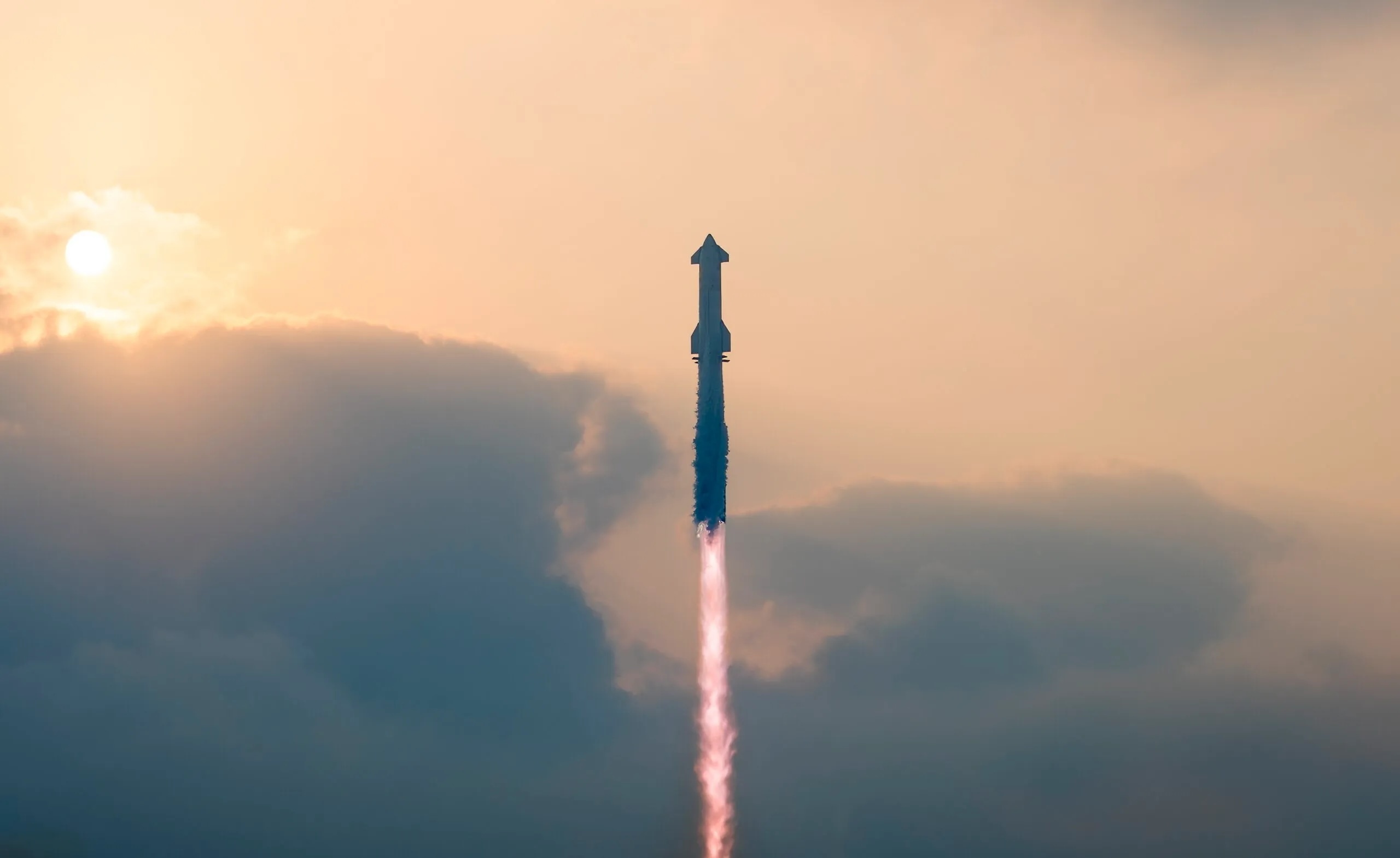26.06.2024
Gen. Stephen Whiting: “Let’s let the demonstrations continue”

SpaceX’s Starship’s rocket performed a test flight on June 6, 2024. Credit: SpaceX
WASHINGTON — The head of U.S. Space Command expressed support for the military’s experimental “rocket cargo” program, even as the initiative remains in its infancy and far from operational status.
Speaking June 24 at the Mitchell Institute for Aerospace Studies, Gen. Stephen Whiting said he sees promise in the Air Force Research Laboratory’s efforts on rocket cargo for point-to-point delivery. “We’re excited about the work that the Air Force Research Lab has done on rocket cargo,” Whiting said. “There’s a lot to be worked out here and to understand how it would happen.”
The rocket cargo concept aims to leverage reusable rockets, like SpaceX’s Starship, to rapidly transport military cargo globally within an hour. SpaceX has emerged as the primary beneficiary of funding for rocket cargo initiatives, with its massive Starship vehicle being the most prominent candidate under consideration.
While enthusiastic about the program’s potential, Whiting acknowledged that operational details remain undecided. “We haven’t entered into a discussion yet about who would be responsible for operating that,” he noted, adding that he plans to discuss the program further with U.S. Transportation Command leaders this summer.
Whiting emphasized that commercial developments will play a crucial role in shaping the program’s future. “Let’s let the demonstrations continue. And as we start to build out an operational concept that would make sense for the nation, then we can have the discussion of where that’s gonna go, who’s gonna have responsibility for it,” he said.
While the idea of using rockets for Earth-bound cargo delivery may seem like science fiction, the military is taking it seriously. Efforts began in 2018 when the Air Force started studying the feasibility of rocket-based cargo transport. In 2020, U.S. Transportation Command started working on cooperative studies with commercial firms like SpaceX. The rocket cargo program was officially announced in 2021. In 2022, the Department of the Air Force awarded SpaceX a $102 million, five-year contract to demonstrate technologies and capabilities.
Rocket cargo was designated as a Department of the Air Force “Vanguard” program, highlighting its importance in science and technology research. AFRL is now working with various commercial vendors, including SpaceX, Rocket Lab, and Blue Origin, to explore and develop technologies.
While the program shows promise, it faces technical, economic and regulatory challenges. These include ensuring the compatibility of cargo containers with other transportation modes, managing the high costs associated with rocket launches, and addressing regulatory issues related to international rocket flights.
Quelle: SN
